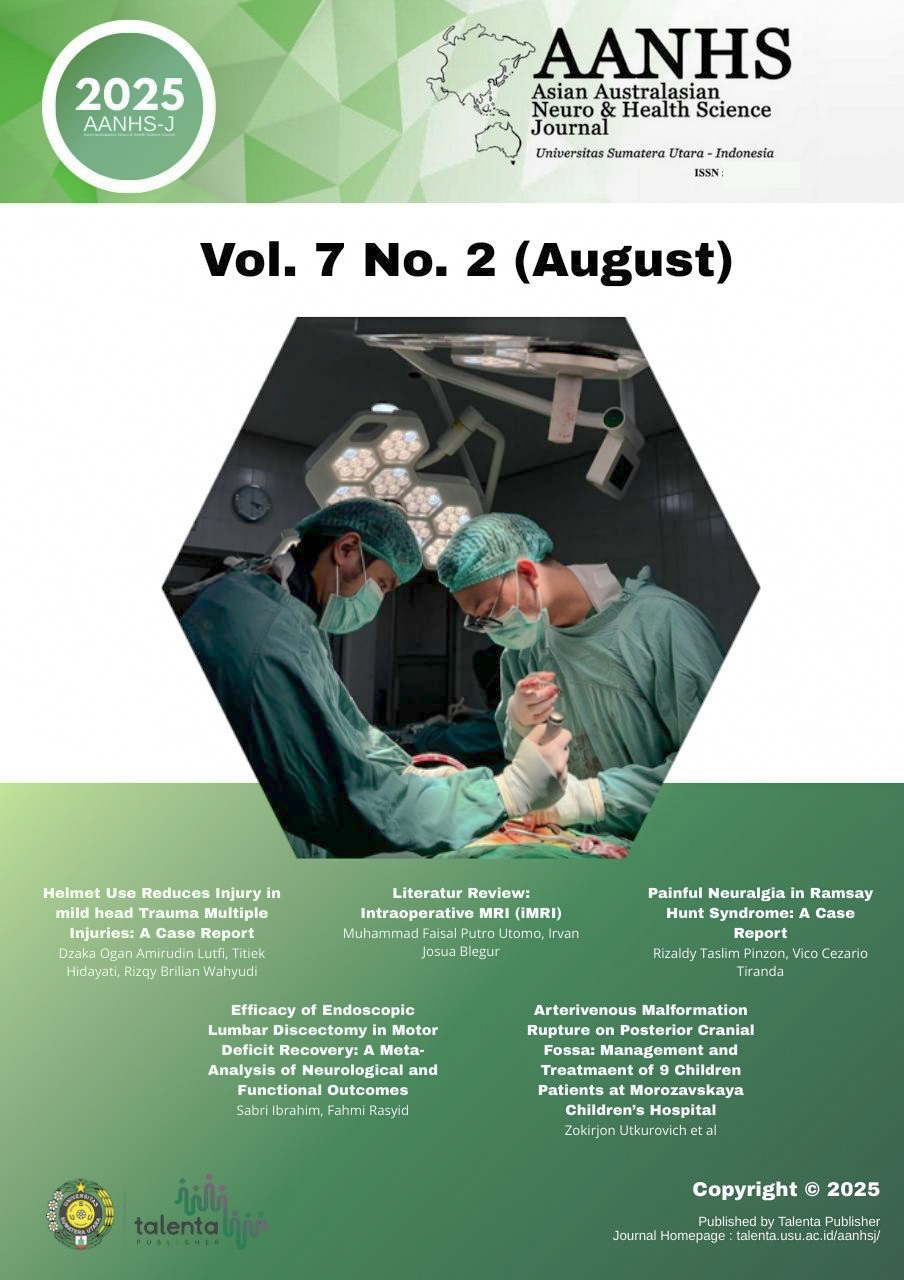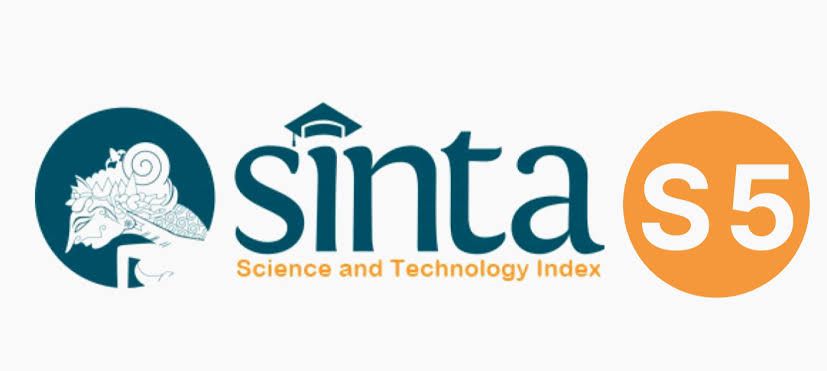Efficacy of Endoscopic Lumbar Discectomy in Motor Deficit Recovery: A Meta-Analysis of Neurological and Functional Outcomes
DOI:
https://doi.org/10.32734/aanhsj.v7i02.21661Keywords:
Endoscopic lumbar discectomy, Motor deficit, MRC scale, Oswestry Disability Index, Minimally invasive spine surgery, Functional recoveryAbstract
Background: Endoscopic Lumbar Discectomy (ELD) has gained popularity as a minimally invasive alternative for treating lumbar disc herniation. However, its safety and efficacy in patients with preoperative motor deficits remain under debate due to concerns about limited decompression and neurological recovery. This study aimed to evaluate neurological and functional outcomes following ELD in patients presenting with motor weakness.
Methods: A meta-analysis were conducted on studies published between 2015 and 2025. Databases searched included PubMed, Scopus, Web of Science, and Cochrane Library. Eligible studies reported pre- and postoperative motor function (MRC scale) and/or functional disability (Oswestry Disability Index, ODI) in patients undergoing ELD. Pooled mean changes in MRC and ODI were calculated, and subgroup analysis was performed based on baseline motor strength.
Results: Eight studies comprising 613 patients met inclusion criteria. The pooled mean improvement in motor strength was +1.44 on the MRC scale. Functional outcomes improved significantly, with a mean ODI reduction of −37.3 points. Patients with severe baseline deficits (MRC ≤3) demonstrated greater neurological recovery. No study reported postoperative motor deterioration, and complication rates were low.
Conclusion: ELD is associated with favorable neurological and functional outcomes in patients with preoperative motor deficits. These findings suggest that motor weakness should not be considered a contraindication to ELD, and with appropriate selection and expertise, ELD offers a safe and effective surgical option.
Downloads
Published
Issue
Section
License

This work is licensed under a Creative Commons Attribution-ShareAlike 4.0 International License.
The Authors submitting a manuscript do understand that if the manuscript was accepted for publication, the copyright of the article shall be assigned to AANHS Journal.
The copyright encompasses exclusive rights to reproduce and deliver the article in all forms and media. The reproduction of any part of this journal, its storage in databases and its transmission by any form or media will be allowed only with a written permission from Asian Australasian Neuro and Health Science Journal (AANHSJ).
The Copyright Transfer Form can be downloaded here.
The Copyright form should be signed originally and sent to the Editorial Office in the form of original mail or scanned document.














